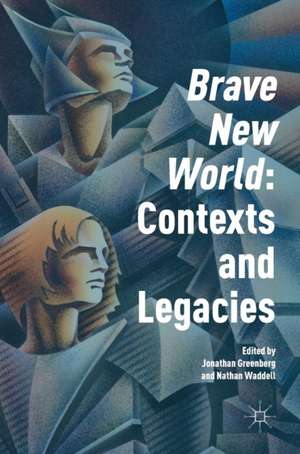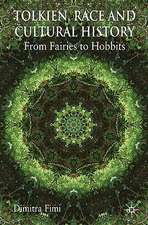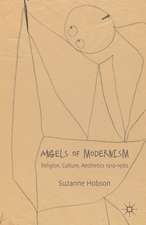'Brave New World': Contexts and Legacies
Editat de Jonathan Greenberg, Nathan Waddellen Limba Engleză Hardback – 17 oct 2016
| Toate formatele și edițiile | Preț | Express |
|---|---|---|
| Paperback (1) | 727.97 lei 6-8 săpt. | |
| Palgrave Macmillan UK – 4 noi 2020 | 727.97 lei 6-8 săpt. | |
| Hardback (1) | 874.06 lei 6-8 săpt. | |
| Palgrave Macmillan UK – 17 oct 2016 | 874.06 lei 6-8 săpt. |
Preț: 874.06 lei
Preț vechi: 1065.93 lei
-18% Nou
Puncte Express: 1311
Preț estimativ în valută:
167.25€ • 182.24$ • 140.93£
167.25€ • 182.24$ • 140.93£
Carte tipărită la comandă
Livrare economică 23 aprilie-07 mai
Preluare comenzi: 021 569.72.76
Specificații
ISBN-13: 9781137445407
ISBN-10: 1137445408
Pagini: 288
Ilustrații: XXIII, 254 p. 3 illus., 1 illus. in color.
Dimensiuni: 148 x 210 x 22 mm
Greutate: 4.65 kg
Ediția:1st ed. 2016
Editura: Palgrave Macmillan UK
Colecția Palgrave Macmillan
Locul publicării:London, United Kingdom
ISBN-10: 1137445408
Pagini: 288
Ilustrații: XXIII, 254 p. 3 illus., 1 illus. in color.
Dimensiuni: 148 x 210 x 22 mm
Greutate: 4.65 kg
Ediția:1st ed. 2016
Editura: Palgrave Macmillan UK
Colecția Palgrave Macmillan
Locul publicării:London, United Kingdom
Cuprins
Introduction.- 1. Brave New World as a Modern Utopia.- 2. Signs of the T.- 3. ‘That Learning Were Such a Filthy Thing'.- 4. The Pleasures of Dystopia.- 5. Huxley and Reproduction.- 6. What Huxley Got Wrong.- 7. Brave New World and Vanity Fair; Carey Snyder.- 8. The Brave New World of Mothering.- 9. Ethics in the Late Anthropocene.- 10. ‘My Hypothetical Islanders’.- 11. ‘Words Without Reason’.
Notă biografică
Dr Jonathan Greenberg is Associate Professor in the English Department at Montclair State University, USA. He is the author of Modernism, Satire, and the Novel (2011).
Dr Nathan Waddell is Assistant Professor in the School of English at the University of Nottingham, UK. He is the author of Modernist Nowheres (2012).
List of Contributors
David Bradshaw, University of Oxford, UK
Laura Frost, The New School, USA
Andrzej Gąsiorek, University of Birmingham, UK
Keith Leslie Johnson, Georgia Regents University, USA
Aaron Matz, Scripps College, USA
Jerome Meckier,(Emeritus) University of Kentucky, USA
Patrick Parrinder, University of Reading, UK
Claudia Rosenhan, University of Edinburgh, UK
Carey Snyder, Ohio University, USA
Kathryn Southworth, Independent Scholar
Dr Nathan Waddell is Assistant Professor in the School of English at the University of Nottingham, UK. He is the author of Modernist Nowheres (2012).
List of Contributors
David Bradshaw, University of Oxford, UK
Laura Frost, The New School, USA
Andrzej Gąsiorek, University of Birmingham, UK
Keith Leslie Johnson, Georgia Regents University, USA
Aaron Matz, Scripps College, USA
Jerome Meckier,(Emeritus) University of Kentucky, USA
Patrick Parrinder, University of Reading, UK
Claudia Rosenhan, University of Edinburgh, UK
Carey Snyder, Ohio University, USA
Kathryn Southworth, Independent Scholar
Textul de pe ultima copertă
This collection of essays provides new readings of Huxley’s classic dystopian satire, Brave New World (1932). Leading international scholars consider from new angles the historical contexts in which the book was written and the cultural legacies in which it looms large. The volume affirms Huxley’s prescient critiques of modernity and his continuing relevance to debates about political power, art, and the vexed relationship between nature and humankind. Individual chapters explore connections between Brave New World and the nature of utopia, the 1930s American Technocracy movement, education and social control, pleasure, reproduction, futurology, inter-war periodical networks, motherhood, ethics and the Anthropocene, islands, and the moral life. The volume also includes a ‘Foreword’ written by David Bradshaw, one of the world’s top Huxley scholars. Timely and consistently illuminating, this collection is essential reading for students, critics, and Huxley enthusiasts alike.













